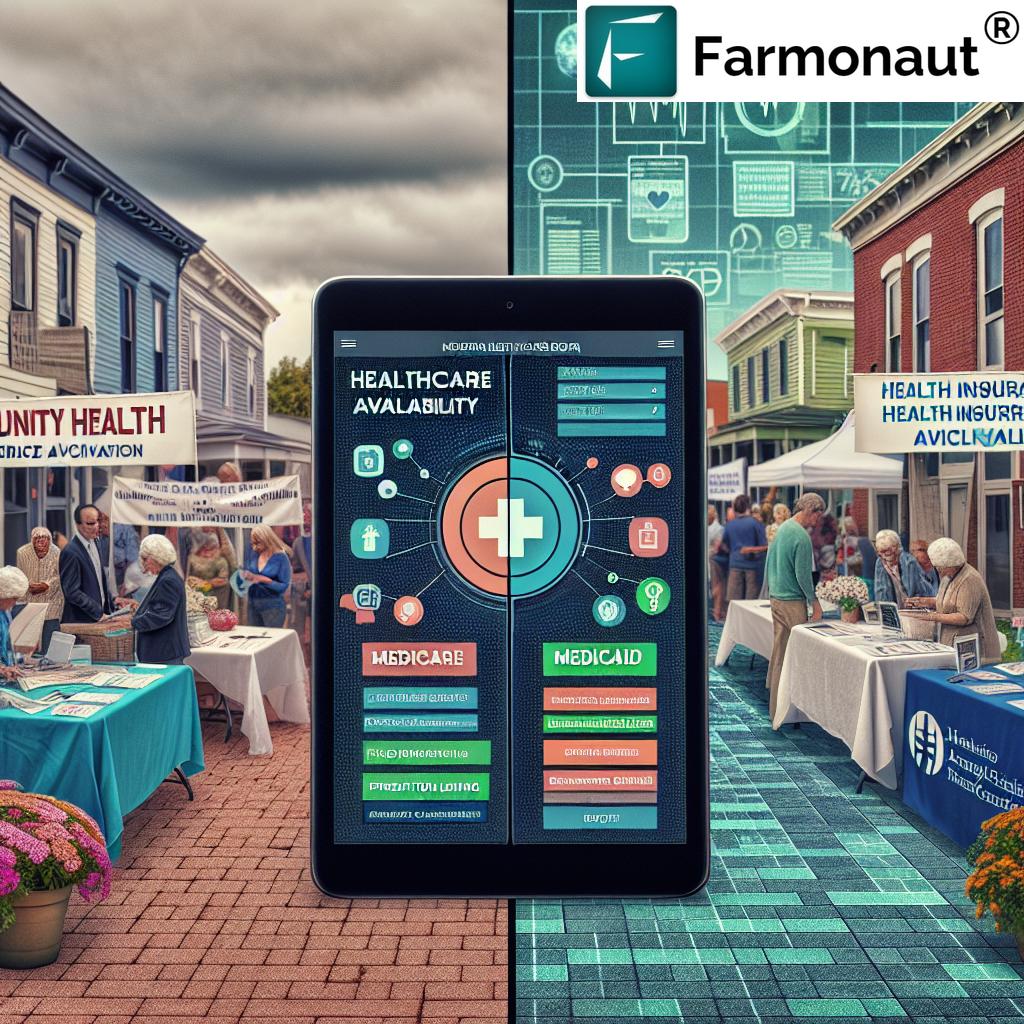Record-Breaking ACA Enrollment: How Auburn’s Healthcare Landscape Is Changing Under New Policies
In recent years, we’ve witnessed a significant transformation in the healthcare landscape of Auburn, Alabama, and across the nation. The Affordable Care Act (ACA) has played a pivotal role in reshaping how Americans access and afford health insurance. As we delve into this topic, we’ll explore the record-breaking enrollment numbers, the impact of new policies, and what these changes mean for Auburn residents and beyond.
“ACA enrollment has reached a record-breaking 24 million Americans, showcasing a significant increase in affordable health coverage.”
The Surge in ACA Enrollment: A Closer Look
The recent surge in ACA enrollment marks a significant milestone in the journey towards universal health coverage in the United States. With a record-breaking 24 million Americans now enrolled, we’re seeing the fruits of expanded healthcare policies and increased efforts to make insurance more accessible.
In Auburn and surrounding areas like Opelika, this increase in enrollment has brought about notable changes in the community’s healthcare dynamics. More residents now have access to preventive care, essential health services, and protection against high medical costs.
Factors Driving the Enrollment Boom
- Expanded ACA tax credits
- Simplified enrollment processes
- Increased outreach and education efforts
- Growing awareness of the importance of health insurance
These factors have collectively contributed to the unprecedented growth in ACA enrollment, particularly benefiting middle and low-income families in Auburn and across Alabama.

The Role of Expanded Tax Credits
One of the key drivers behind the surge in ACA enrollment has been the expansion of tax credits. These credits have made health insurance more affordable for millions of Americans, including many in Auburn and throughout Alabama. Let’s break down how these credits work and their impact on the local healthcare landscape.
Understanding ACA Tax Credits
ACA tax credits are designed to help eligible individuals and families afford health insurance purchased through the Health Insurance Marketplace. The amount of credit you receive depends on factors such as income, household size, and the cost of available insurance plans in your area.
For Auburn residents, these credits have been a game-changer. Many who previously found health insurance out of reach can now access affordable coverage, leading to improved health outcomes and financial security.
Impact on Auburn’s Healthcare Market
The expanded tax credits have had a ripple effect throughout Auburn’s healthcare ecosystem:
- Increased patient volume at local healthcare providers
- Greater demand for preventive services
- Reduced strain on emergency services for non-urgent care
- Potential for new healthcare jobs to meet growing demand
These changes are reshaping how healthcare is delivered and accessed in our community, creating a more robust and responsive healthcare system.
The Open Enrollment Deadline: What Auburn Residents Need to Know
“The open enrollment deadline approaches, with potential expiration of tax credits impacting healthcare affordability for millions.”
As we approach the open enrollment deadline for ACA coverage, it’s crucial for Auburn residents to understand the importance of timely action. The deadline marks the end of the period during which individuals can enroll in or change their health insurance plans through the Health Insurance Marketplace.
Key Dates and Deadlines
- Open Enrollment Period: November 1 to January 15
- Coverage Start Date: January 1 (if enrolled by December 15)
- Final Deadline: January 15 for coverage starting February 1
Missing these deadlines could result in a lack of coverage or higher costs, making it essential for Auburn residents to act promptly.
Navigating the Enrollment Process
Enrolling in a health insurance plan through the ACA Marketplace can seem daunting, but resources are available to help Auburn residents make informed decisions:
- Online tools at HealthCare.gov
- Local insurance brokers and navigators
- Community health centers offering enrollment assistance
- Alabama Department of Insurance resources
By utilizing these resources, Auburn residents can ensure they’re selecting the most appropriate and affordable health coverage for their needs.

The Future of Healthcare Affordability in Auburn
While the current landscape of healthcare affordability in Auburn is promising, there are potential challenges on the horizon. The future of ACA tax credits and other affordability programs remains uncertain, with political debates and policy changes potentially impacting access to affordable health coverage.
Potential Policy Changes and Their Impact
- Expiration of expanded tax credits
- Debates over Medicare and Medicaid coverage
- Prescription drug cost reforms
- State-level healthcare initiatives
These potential changes could significantly affect how Auburn residents access and afford healthcare in the coming years.
Community Response and Advocacy
In response to these potential changes, we’re seeing increased advocacy and community engagement in Auburn and across Alabama. Local healthcare providers, community organizations, and advocacy groups are working to ensure that residents’ voices are heard in the ongoing healthcare policy debates.
Initiatives include:
- Town hall meetings on healthcare policy
- Grassroots campaigns for affordable healthcare
- Partnerships between healthcare providers and community organizations
- Educational programs on health insurance literacy
These efforts aim to keep Auburn residents informed and engaged in shaping the future of healthcare in their community.
Impact on Specific Sectors in Auburn
The changes in healthcare policy and affordability are having far-reaching effects across various sectors in Auburn. Let’s explore how these changes are impacting different areas of our community:
Nursing Homes and Long-Term Care
The increased access to affordable health insurance has implications for Auburn’s nursing homes and long-term care facilities:
- Potential for increased demand as more residents have coverage for long-term care
- Challenges in staffing and resource allocation to meet growing needs
- Opportunities for improved quality of care through better-insured patients
Schools and Education
Auburn’s schools are also feeling the impact of healthcare policy changes:
- Potential for healthier student populations due to increased access to preventive care
- Changes in school health programs and services
- Opportunities for health education initiatives in partnership with local healthcare providers
Local Businesses and Employers
Employers in Auburn are navigating new terrain when it comes to employee health benefits:
- Potential shifts in employer-sponsored health insurance offerings
- Opportunities for small businesses to access more affordable health insurance options
- Impacts on hiring and retention strategies related to health benefits
Healthcare Affordability Programs: What Auburn Residents Should Know
Understanding the various healthcare affordability programs available is crucial for Auburn residents seeking to make the most of their health insurance options. Let’s explore some key programs and initiatives:
Medicaid Expansion in Alabama
While Alabama has not yet expanded Medicaid under the ACA, discussions around potential expansion continue. Auburn residents should stay informed about these developments, as Medicaid expansion could significantly impact healthcare affordability for many in our community.
Medicare Coverage and Changes
For Auburn’s senior population, understanding Medicare coverage and recent changes is essential:
- Updates to Medicare Part D prescription drug coverage
- Expansion of telehealth services under Medicare
- Potential changes to Medicare Advantage plans
Prescription Drug Cost Initiatives
Efforts to address the high cost of prescription drugs are ongoing, with potential benefits for Auburn residents:
- Federal and state-level initiatives to cap out-of-pocket costs
- Programs to increase price transparency for medications
- Efforts to allow Medicare to negotiate drug prices
The Role of Technology in Healthcare Access
As we navigate these changes in healthcare policy and affordability, technology is playing an increasingly important role in how Auburn residents access and manage their health insurance and care.
Telehealth and Remote Care
The expansion of telehealth services has been accelerated by recent policy changes and technological advancements:
- Increased coverage for telehealth services under many insurance plans
- Improved access to specialists for Auburn residents, especially in rural areas
- Potential for more efficient and convenient healthcare delivery
Digital Health Insurance Marketplaces
Online platforms are making it easier for Auburn residents to compare and select health insurance plans:
- User-friendly interfaces for browsing and comparing plans
- Tools for estimating costs and subsidies
- Integration with state and federal databases for eligibility verification
These technological advancements are helping to streamline the health insurance enrollment process and improve access to information for Auburn residents.
Community Health Initiatives in Auburn
In response to the changing healthcare landscape, Auburn has seen a rise in community-driven health initiatives aimed at improving access to care and promoting overall wellness:
Free Health Clinics and Screening Events
- Regular community health fairs offering free screenings
- Pop-up clinics providing basic care services
- Partnerships between local healthcare providers and community organizations
Health Education Programs
- Workshops on navigating health insurance options
- Classes on managing chronic conditions
- Nutrition and fitness programs for all ages
Mental Health Support
- Expansion of mental health services in community settings
- Support groups and counseling services
- Initiatives to reduce stigma around mental health issues
These community-driven efforts complement the broader policy changes, helping to create a more comprehensive approach to healthcare in Auburn.
Economic Impact of Healthcare Changes in Auburn
The shifts in healthcare policy and affordability are having significant economic implications for Auburn and the surrounding region:
Job Creation in the Healthcare Sector
- Increased demand for healthcare professionals
- Growth in administrative and support roles
- Opportunities in health technology and data management
Impact on Local Businesses
- Potential reduction in healthcare costs for small businesses
- Changes in employee benefits packages
- Growth opportunities for businesses in the healthcare supply chain
Healthcare as an Economic Driver
- Attraction of new healthcare facilities and services to the area
- Potential for medical tourism and specialized care centers
- Increased research and development activities in healthcare-related fields
These economic impacts underscore the importance of healthcare policy in shaping Auburn’s overall economic landscape.
Challenges and Opportunities Ahead
As Auburn navigates this evolving healthcare landscape, several challenges and opportunities lie ahead:
Challenges
- Uncertainty around future healthcare policies and funding
- Addressing healthcare disparities within the community
- Managing the potential expiration of expanded tax credits
- Balancing increased demand with healthcare provider capacity
Opportunities
- Innovative approaches to healthcare delivery and access
- Strengthened community health partnerships
- Potential for Auburn to become a model for healthcare innovation in Alabama
- Improved health outcomes through increased access to preventive care
By addressing these challenges and seizing opportunities, Auburn can continue to improve its healthcare landscape for all residents.
Conclusion: The Path Forward for Auburn’s Healthcare
As we’ve explored, the healthcare landscape in Auburn is undergoing significant changes, driven by record-breaking ACA enrollment and evolving policies. These shifts present both challenges and opportunities for our community.
Key takeaways include:
- The importance of staying informed about healthcare policy changes
- The need for continued community engagement and advocacy
- The potential for technology to improve healthcare access and delivery
- The economic implications of healthcare changes for Auburn
As we move forward, it’s crucial for Auburn residents to remain engaged, informed, and proactive in managing their health insurance and care. By working together as a community, we can help ensure that Auburn’s healthcare landscape continues to evolve in ways that benefit all residents, promoting better health outcomes and a stronger, more resilient community.
FAQ Section
Q: How do the ACA tax credits work for Auburn residents?
A: ACA tax credits help eligible Auburn residents reduce their monthly health insurance premiums. The amount depends on factors like income, household size, and the cost of available plans in the area.
Q: What should I do if I miss the open enrollment deadline?
A: If you miss the open enrollment deadline, you may still be eligible for a Special Enrollment Period if you experience certain life events, such as losing other coverage, getting married, or having a baby.
Q: How might potential policy changes affect my healthcare in Auburn?
A: Policy changes could impact the availability of tax credits, coverage for pre-existing conditions, and the cost of prescription drugs. Stay informed through local healthcare resources and advocacy groups.
Q: Are there resources available to help me choose the right health insurance plan?
A: Yes, Auburn residents can access assistance through HealthCare.gov, local insurance brokers, community health centers, and the Alabama Department of Insurance.
Q: How is telehealth changing healthcare access in Auburn?
A: Telehealth is expanding access to care, especially for specialists, and is increasingly covered by insurance plans. This allows for more convenient and efficient healthcare delivery for many Auburn residents.
| Aspect | Before Recent Changes | After Recent Changes |
|---|---|---|
| Total ACA Enrollment | Approximately 11.4 million | Record-breaking 24 million |
| Average Insurance Premiums | Higher, less affordable for many | Reduced due to expanded tax credits |
| Tax Credit Availability | Limited to lower income brackets | Expanded to include more middle-income families |
| Medicaid Expansion States | 38 states | 39 states (with ongoing debates in others) |
| Prescription Drug Cost Coverage | Limited cost control measures | Increased efforts to cap out-of-pocket costs |
Earn With Farmonaut: Affiliate Program
Earn 20% recurring commission with Farmonaut’s affiliate program by sharing your promo code and helping farmers save 10%. Onboard 10 Elite farmers monthly to earn a minimum of $148,000 annually—start now and grow your income!
For more information on Farmonaut’s innovative agricultural solutions, visit our web app or check out our mobile apps:
Developers can integrate our satellite and weather data into their applications using our API. For detailed documentation, visit our API Developer Docs.
Farmonaut continues to innovate in the agricultural technology space, providing solutions that make precision agriculture more accessible and affordable. While we focus on empowering farmers with data-driven insights, it’s important to note that Farmonaut is not an online marketplace, manufacturer/seller of farm inputs or machinery, or a regulatory body. Our mission is to support sustainable and efficient farming practices through advanced technology.
As we continue to navigate the changing healthcare landscape in Auburn and beyond, it’s crucial to stay informed and engaged. Whether you’re a farmer utilizing Farmonaut’s innovative solutions or a resident exploring your healthcare options, knowledge and proactive planning are key to making the most of the opportunities available to you.
Remember, the healthcare landscape is continually evolving, and staying informed is crucial. Whether you’re managing your farm with Farmonaut’s advanced tools or navigating your healthcare options in Auburn, being proactive and informed will help you make the best decisions for your health and well-being.







I really like your post. Thanks for sharing this with us.